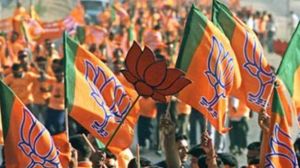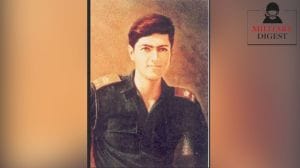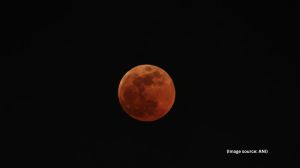Explained: Why Australia, Netherlands are taking legal action against Russia over 2014 MH17 crash
Australia and the Netherlands will launch a new legal case against Moscow over its alleged role in the downing of Malaysia Airlines flight MH17 that crashed in eastern Ukraine’s Donetsk region in 2014, when Crimea was annexed by Russian forces. What is their case?
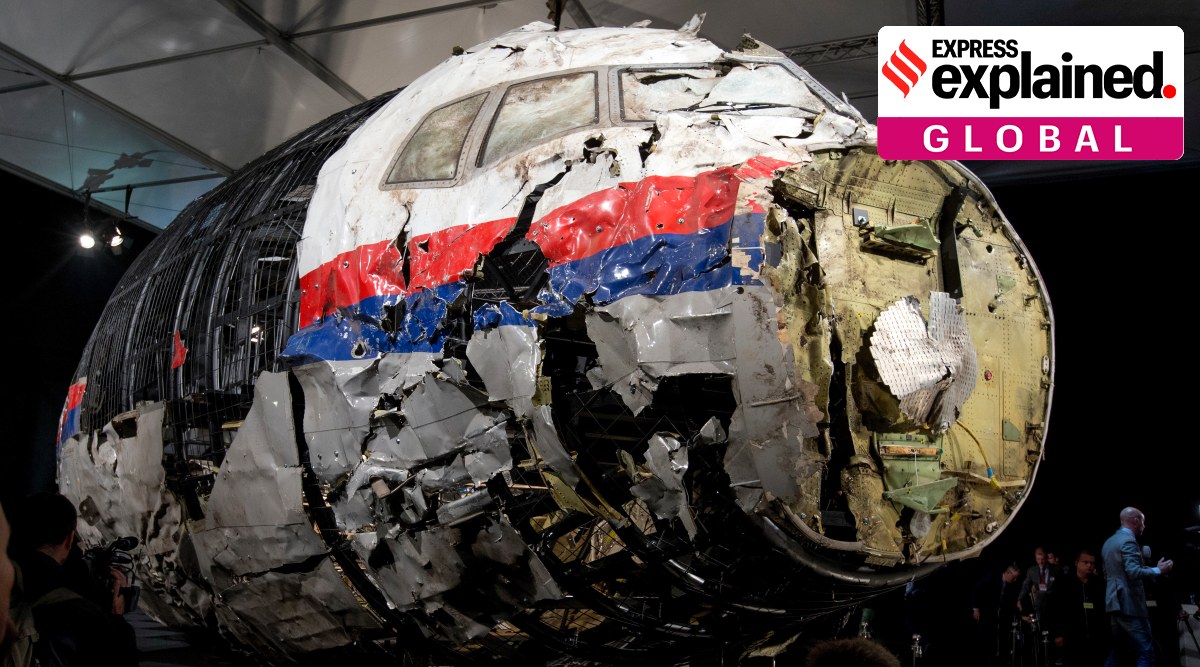 The reconstructed wreckage of Malaysia Airlines Flight MH17, put on display during a press conference in Gilze-Rijen, central Netherlands. (AP Photo/Peter Dejong, File)
The reconstructed wreckage of Malaysia Airlines Flight MH17, put on display during a press conference in Gilze-Rijen, central Netherlands. (AP Photo/Peter Dejong, File)
Amid the Russian invasion of Ukraine, Australia and the Netherlands will launch a new legal case against Moscow over its alleged role in the downing of Malaysia Airlines flight MH17 that crashed in eastern Ukraine’s Donetsk region in 2014, when Crimea was annexed by Russian forces.
All 298 passengers and crew on board were killed when the plane crashed on 17 July 2014, after it was hit by a missile, alleged to be Russian. The plane was flying between Amsterdam and Kuala Lumpur and was over eastern Ukraine when it got hit by a missile. At the time, a civil war was being fought in the region, between Ukrainian forces and pro-Russian separatist rebels. There were 38 Australian nationals, 196 Dutch nationals, 43 Malaysians on board.
The government of the Netherlands has denied that the legal action is a result of the war between Russia and Ukraine, saying it is a result of consultations between the two countries after Russia withdrew from negotiating further.
Australian Prime Minister Scott Morrison recently said that Russia’s “unprovoked” and “unjustified” invasion of Ukraine “underscores the need to continue our enduring efforts to hold Russia to account for its blatant violation of international law and the UN Charter, including threats to Ukraine’s sovereignty and airspace.”
Russia and the Netherlands have initiated legal proceedings before the International Civil Aviation Organisation (ICAO) under Article 84 of the Convention on International Civil Aviation. Both the countries first held Russia responsible for the plane crash in 2018, but Russia, in 2020, unilaterally pulled out from negotiations.
MH17 crash: What happened in 2014?
A series of events led to Russia’s annexation of the Crimean peninsula in 2014. The previous year, in November 2013, anti-government protests started in Ukraine’s capital Kyiv.
The protesters were unhappy with pro-Russian president Viktor Yanukovych’s decision to forego a deal that would have led to increased integration of Ukraine and the European Union. Russia supported Yanukovych, while Europe and the US expressed support for the protesters.
By February 2014, the situation had escalated, with state repression encouraging more people to join the protests. The same month Yanukovych fled Ukraine, which made Russia anxious about losing influence in Europe’s largest country, which was part of the Soviet Union until the Berlin Wall fell in 1989.
To address this, Russian troops wasted little time in annexing Crimea. By March 2014, the troops had taken control of the peninsula. Russian President Vladimir Putin justified the annexation by saying that the decision was taken to protect the rights of Russian speakers and Russians living there.
A controversial referendum was held, which the US and EU called illegal. More than 90 percent of the voters voted to join Russia in this referendum. Shortly after, in regions of eastern Ukraine called Donetsk and Luhansk, pro-Russian separatists held referendums and declared independence from Ukraine. This was the beginning of fighting between the separatist rebels and Ukrainian forces that have led to the deaths of at least 15,000 people.
It was during this fighting that the Malaysia Airlines plane MH17 was hit by a missile and crashed in eastern Ukraine. A number of ceasefire deals have been announced since then but none have been effective in resolving the territorial conflict.
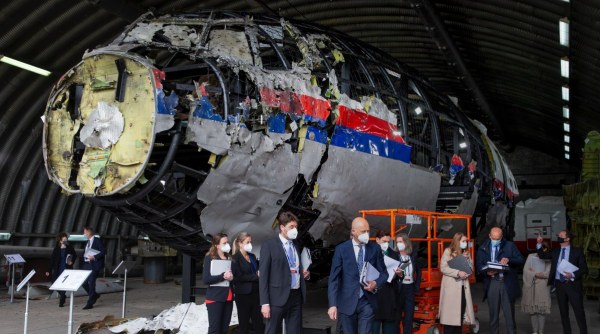 Judges and lawyers view the reconstructed wreckage of Malaysia Airlines Flight MH17, at the Gilze-Rijen military Airbase, southern Netherlands, on May 26, 2021. (AP Photo/Peter Dejong, Pool)
Judges and lawyers view the reconstructed wreckage of Malaysia Airlines Flight MH17, at the Gilze-Rijen military Airbase, southern Netherlands, on May 26, 2021. (AP Photo/Peter Dejong, Pool)
On what grounds are Australia and the Netherlands making their case against Russia?
In a recent statement, Morrison highlighted that both Australia and the Netherlands will rely on “overwhelming evidence” to hold Russia responsible. The evidence includes the downing of MH17 by a Russian surface to air missile system, the transportation of the missile system from Russia to an agricultural field in eastern Ukraine, and the fact that the missile system was returned to Russia after the plane was downed.
“The Russian Federation’s refusal to take responsibility for its role in the downing of Flight MH17 is unacceptable and the Australian Government has always said that it will not exclude any legal options in our pursuit of justice,” Morrison said.
The legal proceedings initiated by the two countries are governed by Article 84 of the Convention on International Civil Aviation, which deals with settling disputes in case of disagreement between two or more states. In such cases, the Council takes a vote to settle issues.
What have investigations into the MH17 crash found?
Russia has repeatedly denied playing a role in the MH17 plane crash. In 2020, Dutch investigators said that the plane was indeed hit by a surface-to-air missile operated by pro-Russian rebels in eastern Ukraine. The Dutch Safety Board (OVV) conducted three investigations into the downing of the flight.
It said that the flight crashed after the detonation of a 9N314M-type warhead launched from the eastern part of Ukraine using a Buk missile system. The missile detonated to the left and above the cockpit of the plane because of which the forward section of the aircraft was penetrated by hundreds of high-energy objects coming from the warhead.
Because of this impact and subsequent blast, three crew members were killed immediately and the plane broke up in mid-air, one of the OVV investigations said. The debris from the plane fell in an area of 50 sq. kilometers.
The OVV also said, “Ukraine had sufficient reason to close the entire airspace over the eastern part of Ukraine as a precaution. Instead, on military grounds flying at lower altitudes was restricted.” On the day this plane crashed over 160 commercial planes flew over the area.
After a Dutch-led joint investigation (which included Australia, Belgium and Malaysia) concluded in May 2018 that the missile system came from a Russian base, the Netherlands and Australia decided to hold Russia responsible. Russia has not only denied the allegations but has called the Dutch investigations “biased, superficial and politicised”.
The BBC notes that four days after the crash, two of Russia’s senior generals accused the Ukrainian government of deliberately pushing MH17 off its flight path and into the war zone. It also says that Russians highlighted a blip on the Russian radar, which showed a Ukrainian fighter jet instead of a commercial plane.
In 2019, Dutch prosecutors charged four individuals including three Russians and one Ukrainian who they said were responsible for targeting the plane.
Newsletter | Click to get the day’s best explainers in your inbox
- 01
- 02
- 03
- 04
- 05













